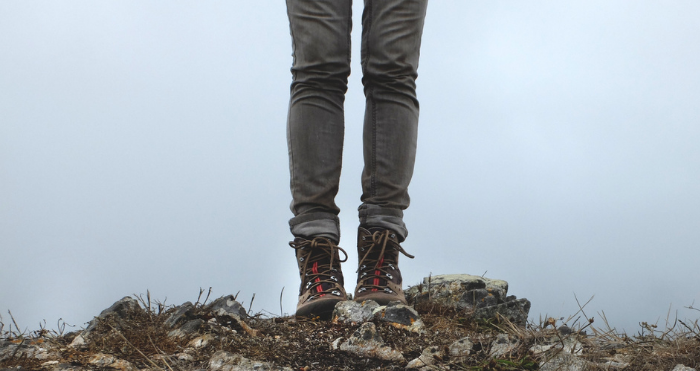Mixed modes of travel and team challenges for young people with additional needs

We caught up with the DofE Leader at Lochgelly High School in Fife, Scotland about how they ran their expedition with a difference.
1. What was the expedition aim?
To identify living things along the route and create a nature guide for future Department of Additional Support groups.
2. What did the expedition look like?
Participants were split into two groups – those who could walk and cycle independently, and those who required more support. All participants were completing DofE as part of their curriculum.
Day 1:
09:00 Depart for Lochore Country Park in two groups (A – walkers, B – minibus)
09:45 Group A arrive at Lochore Outdoor Education Centre and Group B unload minibus and start to organise kit
10:00 Organise bikes/kit for everyone
10:30 Cycle
11:00 Stop for morning tea made by participants followed by team game
12:00 Continue cycle around loch, Group A heading into woods/Group B around loch, stopping for lunch when appropriate
Lunch – participants set up stoves and prepare food agreed in menu
14:00 Regroup and debrief
14.30 Depart Lochore to return to DofE centre
15:15 End of Day 1
Day 2:
09:00 Depart for Lochore Country Park in two groups (A – walkers B – Minibus)
09:45 Group A arrive at Lochore Outdoor Education Centre and Group B unload minibus and start to organise kit
10:00 Organise kit for journey across to the island
10:30 Depart for island
10:45 Morning tea then set up camp on island (pitch tent, collect firewood etc.)
12:00 Campfire cooking for lunch
13:00 Team game
14:00 Pack up camp and return to DofE centre
15.00 Debrief
15:30 End of Day 2
3. What did you need to consider to organise and lead this expedition?
All participants were from the same class group in school so the teacher and two PSAs that normally work with them were available. Costs were kept very low as The Outdoor Education team provided their time and equipment free of charge, because they were still not fully open to paying groups – normally the cost of hiring the adapted bikes is prohibitive to our school. Being local meant there were no transport costs or overnight costs. The only cost was food when participants shopped for their meals.
4. As a Leader, what did you notice about the outcomes for participants doing this expedition?
Participants had not been involved in any travel/visits to places outside of school/home since the start of lockdown so this was a big deal for them. Parents were very supportive of the whole event and were keen for the young people to have this opportunity.
“We had at least two participants who have never been away from home overnight and there was little chance the parents would have given permission for them to participate in an expedition that involved an overnight stay. One young person would normally have become very stressed at not being in school for transport home at his regular time. With advance preparation we were able to get the parent and pupil to agree to participate in the whole day event and not miss part of the activities.”
Participants had the opportunity to experience activities they had not previously done e.g. travelling in a boat out to the island, being independent on adaptive bikes, lighting a fire etc.
“They felt very ‘grown up’ being allowed to make their own choices and decisions, staff very much stepped away and left participants to problem solve their way through the days so the young people really experienced making mistakes and having to resolve problems. We could see participants stepping up to the challenge and growing in confidence as the days progressed.”




